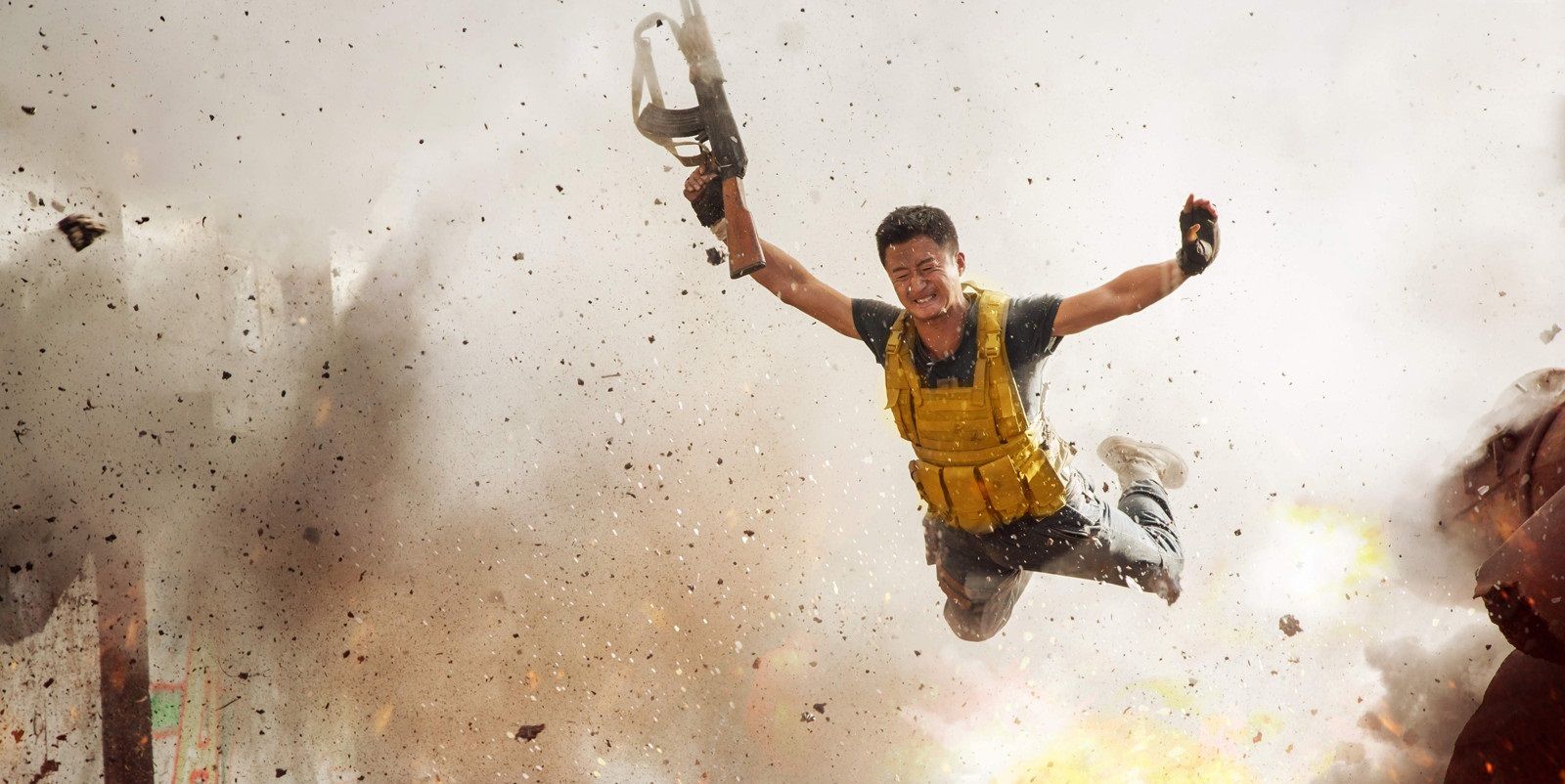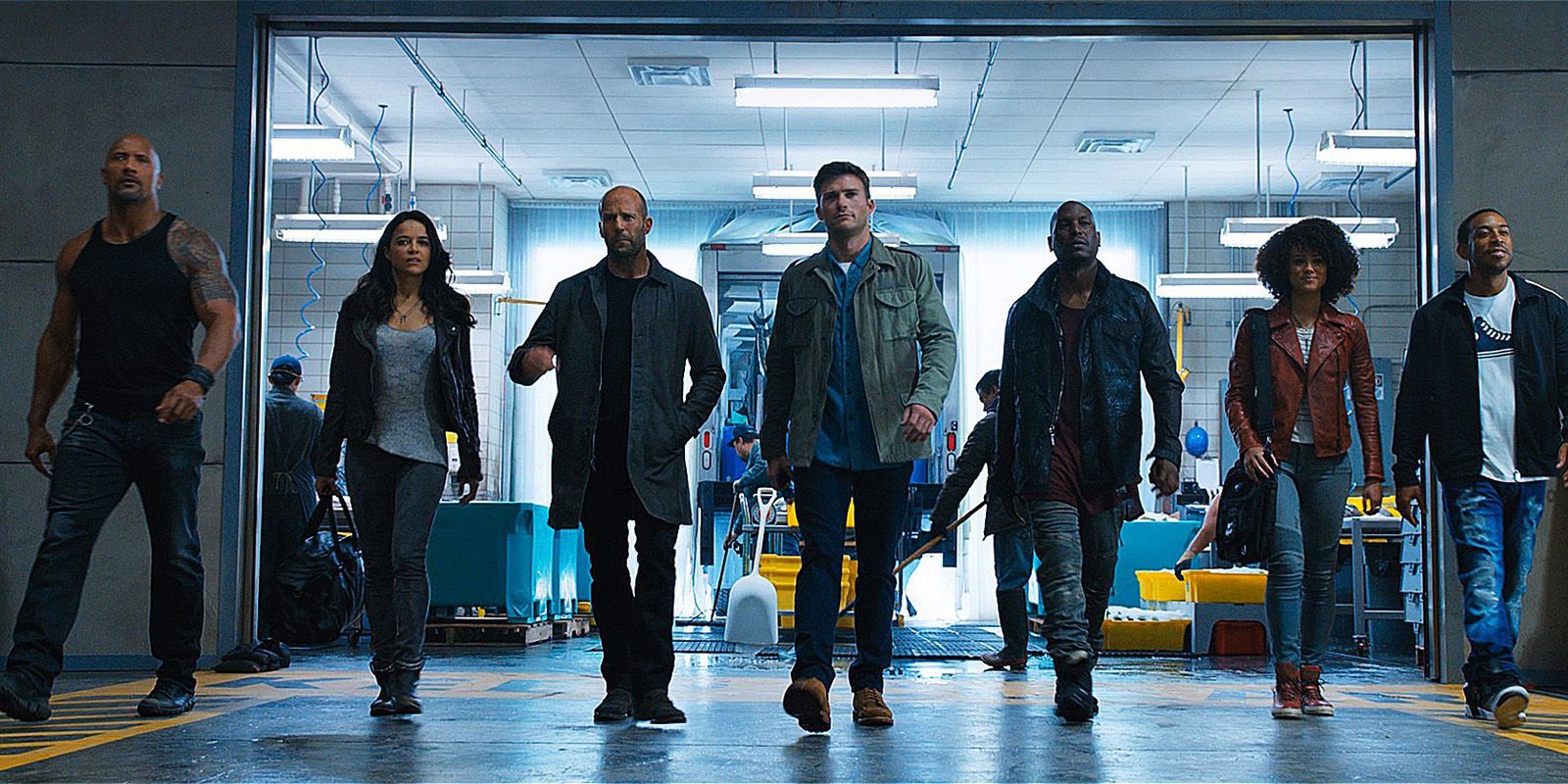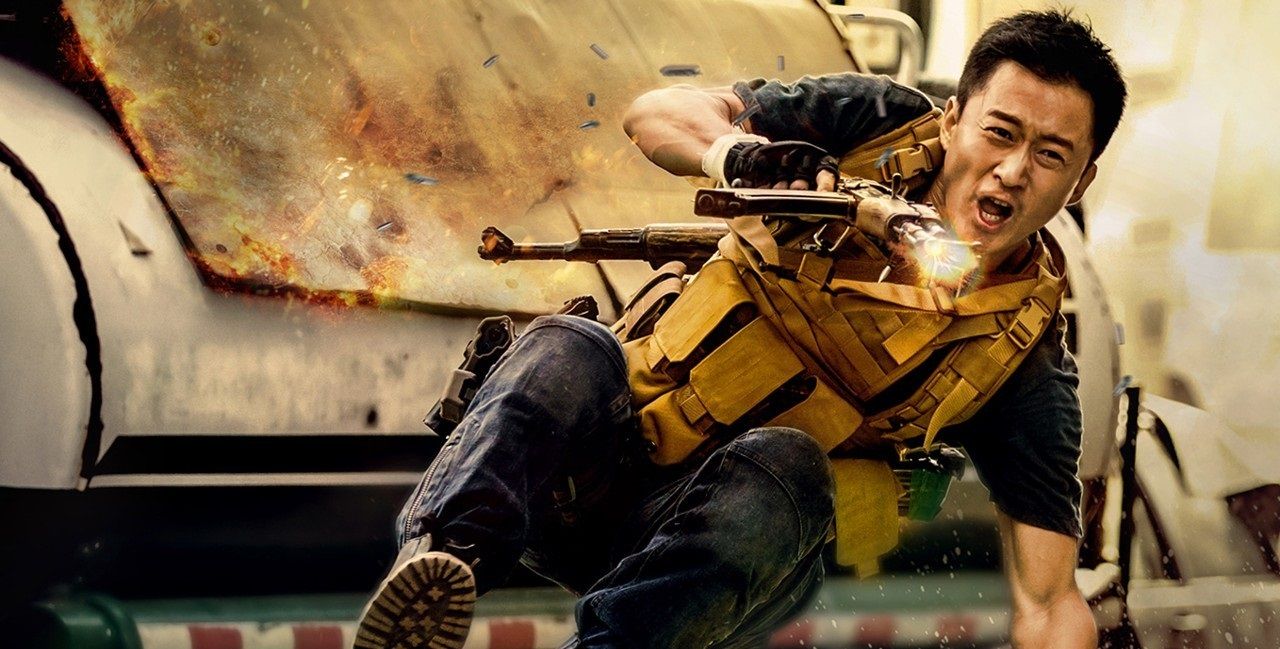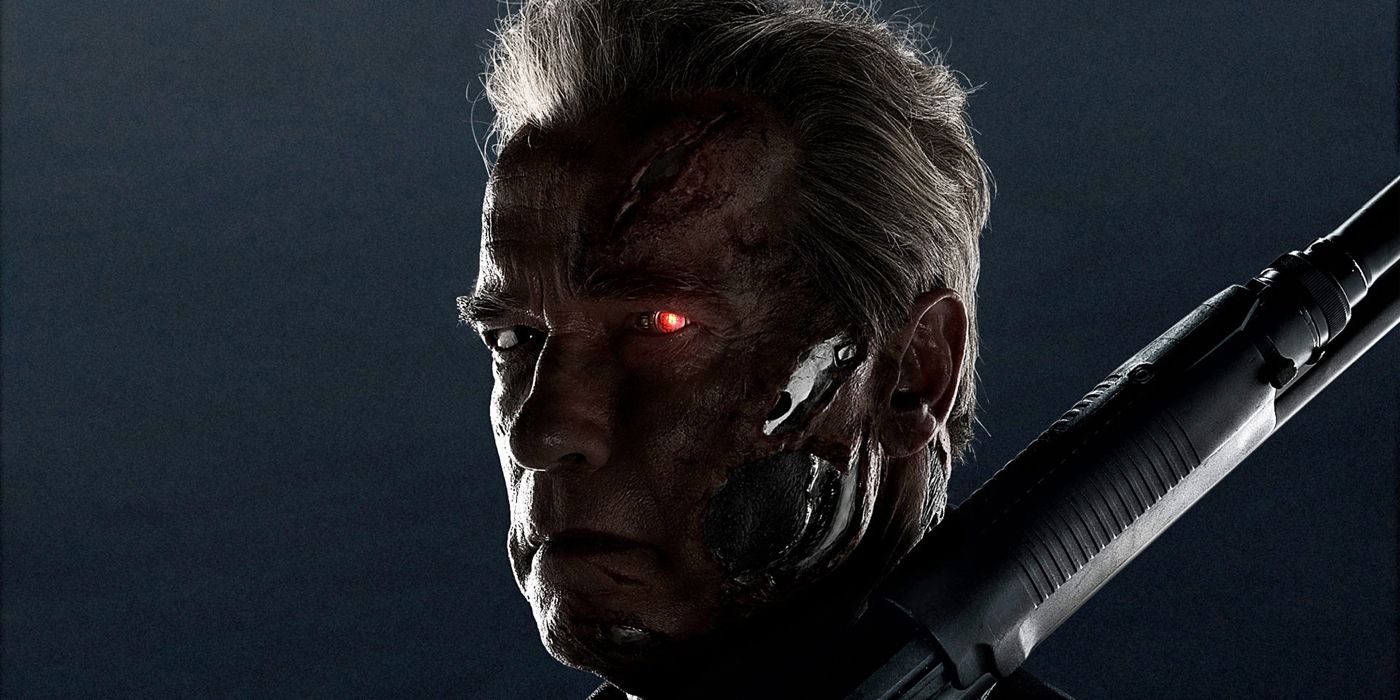Wolf Warrior 2 is bigger than Avatar.
Upon hearing that statement, most people only have one question to ask: "What the heck is Wolf Warrior 2?" According to numbers released by China's film board, the local action flick from director/star Wu Jing has brought in a whopping $853 million in its home country, or nearly $100 million more than $760 million Avatar made in the United States. For comparison, the highest-grossing film in any single territory is Star Wars: The Force Awakens, which made $936 million in the United States.
How did Wolf Warrior 2 become one of the biggest movies of all time without anybody knowing it? How did a movie which would probably be better served as a straight-to-video release in America become the single biggest Chinese film ever made?
The answer may be that it was lightning-in-a-bottle, a once-in-a-lifetime event which happened to hit at the right place at the right time. Or maybe the answer is more insidious. The State Administration of Press, Publication, Radio, Film and Television of the People's Republic of China (or SAPPRFT) has a history of supposedly shady dealings with regards to their box office reporting, to the point there the Motion Picture Association of America is currently in the midst of an audit into the country, the ramifications of which could be game-changing for the industry. This all begs the question: Is China's Government Honest In Their Box Office Reporting?
The State of the Chinese Box Office
First off, it's important to differentiate between films like Wolf Warrior, which are produced by state-run companies within mainland China, and movies from Hong Kong, like John Woo classics Hard Boiled and The Killer. HK movies do not have their content dictated by the government of mainland China.
In recent years, the narrative has been that the Chinese appetite for movies has become larger than ever. China now has over 40,000 movie screens, even more than the United States, and double the amount the country had as recently as 2013. Despite the massive increase in movie screens, and the fact that China's population is around three times that of the USA, China's box office results are still #2 in the world, and not rising as fast as industry analysts had hoped.
While some movies do better than expected in the region, with success stories like Fate of the Furious ($392m in China, versus $225m domestically) and Transformers: The Last Knight ($228m in China; only $130m in the United States and Canada), examples like these are exceptional outliers in the formula, not the norm. There is more to the story than just raw numbers.
Hollywood's Ambition
Hollywood doesn't just want for their movies to gross as much in China as they do in the United States; they need them to gross more much more. In the United States, it's generally accepted that studios take home roughly half of a movie's box office gross. The true numbers are highly variable and differ from movie to movie, and even depending on how long a movie is in theaters, since studios often get a bigger cut of a movie's opening weekend than subsequent weekends. Thanks to taxes and other factors, that number goes down to around 40% in most foreign territories. However, in China studios are only privy to 25% of a movie's earnings. This basically means that, for a Hollywood movie to be as profitable in China as in the USA, it needs to make twice as much money.
Hollywood analysts are deeply perturbed by the relative lack of growth in the Chinese market, despite the rising availability of venues to view movies in theaters. China was supposed to be a veritable license to print money; while the market is immensely valuable, it's not quite the goldmine they had hoped for. Digital piracy is rampant in China, way more than in America, and many simply prefer to stay at home and watch movies online. Without getting into the difficult statistics about international poverty, it's safe to say that going to the movies is a luxury not everyone can afford, even more than it is stateside.
China, Reluctant Consumer
Despite the exuberance of China in growing their movie business, they have been notoriously difficult with regards to saturating their marketplace with Hollywood films. China has an infamous policy of limiting the number of Hollywood movies it allows into local theaters; in 2012, only 20 Hollywood productions were released to theaters in China. That number has since risen to 38, but it's still a tightly-secured supply. Why is this the case?
China is strict on enforcing the types of content released to its people, and the government's draconian opinions towards censorship have long been an annoyance. The Chinese government demanded substantial edits to movies like Pirates of the Caribbean and Skyfall, while some films, like Deadpool, Mad Max: Fury Road, Ghostbusters, and Suicide Squad, were banned completely for not complying with decency standards.
In a way, it's easy to see why the Chinese government could be anxious about the success of movies like Fast & Furious and Transformers; they're not Chinese movies, and the SAPPRFT is trying to grow their home-grown industry while still competing with Hollywood productions.
As in most relationships, jealousy leads to poor choices. China has been caught cheating on their box office returns multiple times, and it had repercussions on the industry. Terminator Genisys might be the most infamous example; In the United States, the film only took in $89 million in ticket sales. In China, the killer robot revival fared stronger, with a final tally of $113 million, and the film ultimately landed at a solid $440 million. At the end of the day, however, it was just not enough to justify continuing the franchise. Almost, but not quite.
Perhaps things would have turned out differently if Terminator had not been the victim of widespread box office fraud. Box office fraud involves someone buying a ticket for one movie, but getting a ticket for another movie. The consumer still sees the movie they paid for, but their money goes to another movie. In the case of Terminator, it lost out to The Hundred Regiments Offensive, a military-themed film which espoused patriotic Chinese values. For China's film board, having a movie which celebrates the glory of the motherland at number one at the box office looked better than having an American sci-fi flick at the top spot, so they allegedly incentivized theaters by promising them a larger cut of the opening weekend if they were to somehow ensure that The Hundred Regiments Offensive beat Terminator at the box office.
It's impossible to know how much money Terminator lost outside of anecdotal accounts (though this story suggests that number is at least $11 million) and the numerous reports of ticket fraud which indicate this has happened with many other movies.
Wolf Warrior 2
With everything taken into consideration, the performance of Wolf Warrior 2 is suspicious. The original Wolf Warrior grossed $81 million. The sequel grossed $867 million. It's not unheard of for sequels to vastly outdo their predecessors; Terminator 2 grossed $205 million, far more than the original's $38 million. The first Austin Powers was a decent hit with $53 million in 1997, while the sequel exploded with a stunning $206 million just two years later. But those outliers pale in comparison to the too-good-to-be-true improvement of Wolf Warrior 2 over its progenitor.
Wolf Warrior 2 is an testosterone-sploitation film in the vein of 1980s action flicks, with overt political messaging about how China is better than the "depraved" West. The hero is a special ops soldier who fights mercenaries (led by Frank Grillo, of all people!) in Africa. Reviews have been mostly average, at best, with many enjoying or being bothered by its shameless pairing of violence and jingoism, to the point where it almost seems like a Commando-esque parody of itself. It's a cool action movie, but it's not exactly a "four-quadrant" crowd-pleaser like Star Wars or Titanic.
Is China Honest In Its Box Office Reporting?
There is not enough information available to discern what effect, if any, the Chinese government's unscrupulous practices have had on Wolf Warrior 2's unprecedented success. Maybe it's just an action film which happened to resonate with a shocking percentage of the population. The problem is, China's film board has been caught with their hand in the cookie jar before, so to speak. Their box office reputation is so bad that they were audited by the MPAA, and the results of the audit prove that the country is dishonest with their box office numbers: China's government withheld 9% of their box office revenue, which resulted in Hollywood studios losing $40 million in business.
Where does that leave Wolf Warrior 2? It's a massive outlier, truly unlike anything ever seen in motion picture history, and there's no honest way to know how much of a hit the movie really was. It certainly had the support of China, who let the movie play for months, when many Hollywood films are unceremoniously pulled after only a few weeks, regardless of how much business they're currently enjoying. On top of that, did customers pay to see other movies while the money went to Wolf Warrior's coffers? At this point it's impossible to know, and that uncertainty is a considerable roadblock to measuring the Chinese box office's position on the world stage.







